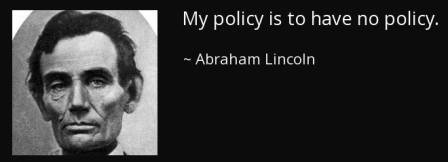#一分鐘英語聽力訓練
From Those to Whom Much is Given, Much is Expected(7-13)(完)
- Bill Gates, Harvard 2007
* 按照順序聽六遍,聽力從0到100
原本以為比爾蓋茲會教大家「如何在三十歲以前變成億萬富翁」,結果是叫大家去當普渡眾生的菩薩,又臭又長,自己泥菩薩過江都難保,看得實在很難受
下午去一家觀音寺,據說很靈驗,我問菩薩,是不是我有什麼業障,怎麼一個多月一家公司通知面試都沒有?
按規矩抽一支籤,上面的文字嚇我一跳,心涼了半截,大意是這樣:
「我知道你每天晚上孤燈一人寂寂沉沉,反正沒事就多做善事,或許會有善果,至於功名事業,都是天注定,你就不要再問啦」
回家路上想,就多做點善事,把Bill Gates剩下七篇一次寫完,也算是功德一件,不對,是七件
明天起,用比較有趣的文章,比方歐卜拉、瑪丹娜、邦喬飛、湯姆漢克斯,喔,還有謝霆鋒和王力宏,大家可以比較,ABC和純種美國人的英文差距….
今天內容,Bill Gates介紹一個叫Rhetorical Question,很有意思,不想聽Bill Gates廢話的人,可以直接看解釋,翻遍兩岸三地翻譯,沒有一家翻對
另一個重點是Effort,什麼時候用是不可數,什麼時候是可數,Bill Gates交互用,困擾很多非英語系的人,今天也做詳解

【聽力挑戰1 英文原聲】
《7》
《8》
《9》
《10》
《11》
《12》
《13》
【聽力挑戰2 英文原文】
《07》
The final step, after seeing the problem and finding an approach, is to measure the impact of the work and to share that, success or failure, so that others can learn from the efforts.
You have to have the statistics, of course.
You have to be able to show, for example, that a program is vaccinating millions more children.
You have to be able to show, for example, a decline in the number of children dying from these diseases.
This is essential not just to improve the program, but also to help draw more investment from business and government.
But if you want to inspire people to participate, you have to show more than numbers; you have to convey the human impact of the work – so people can feel what saving a life means to the families affected.
《08》
I remember going to the World Economy Forum some years back and sitting on a global health panel that was discussing ways to save millions of lives. Millions!
Think of the thrill if you could save just one person’s life – then multiply that by millions.
Yet this was the most boring panel I’ve ever been on, ever.
So boring even I couldn’t stand it.
What made that experience especially striking was that I had just come from an event where we were introducing version 13 of some piece of software, and we had people jumping and shouting with excitement.
I love getting people excited about software – but why can’t we generate even more excitement for saving lives?
You can’t just get people excited unless you can help them see and feel the impact, and the way to do that is a complex question.
《09》
Still, I’m optimistic.
Yes, inequity has been with us forever, but the new tools we have to cut through complexity have not been with us forever.
They are new – they can help us make the most of our caring – and that’s why the future can be different from the past.
The defining and ongoing innovations of this age – biotechnology, the personal computer, and the Internet – give us a chance we’ve never had before to end extreme poverty and end death from preventable disease.
Sixty years ago, George Marshall came to this commencement and he announced a plan to assist the nations of post-war Europe.
He said, I quote, “I think one difficulty is that the problem is one of such enormous complexity that the very mass of facts presented to the public by press and radio make it exceedingly difficult for the man in the street to reach a clear appraisement of the situation.
It is virtually impossible at this distance to grasp at all the real significance of the situation.”
《10》
Thirty years after Marshall made his address, which was 30 years ago, as my class graduated without me, technology was emerging that would make the world smaller, more open, more visible, less distant.
The emergence of low-cost personal computers gave rise to a powerful network that has transformed opportunities for learning and communicating.
The magical thing about this network is not just that it collapses distance and makes everyone your neighbor.
It also dramatically increases the number of brilliant minds we can bring in to work together on the same problem – and that scales up the rate of potential innovation to a staggering degree.
At the same time, for every person who has access to this technology, five people don’t.
That means many creative minds are left out of this discussion – smart people with practical intelligent and relevant experience who don’t have the technology to hone their talents or contribute their ideas to the world.
We need as many people as possible to gain access to this technology, because these advances are triggering a revolution in what human beings can do for one another.
They are making it possible not just for national governments, but for universities, corporations, smaller organizations, and even individuals to see problems, see approaches, and measure the impact of their efforts to address the hunger, poverty, and desperation George Marshall spoke of 60 years ago.
《11》
Members of the Harvard Family: Here in the Yard is one of the great collections of intellectual talent in the world.
For what purpose?
There is no question that the faculty, the alumni, the students, and the benefactors of Harvard have used their power to improve the lives of people here and around the world.
But can we do more?
Can Harvard dedicate its intellect to improving the lives of people who will never even hear its name.
Let me make a request of the deans and the professors – the intellectual leaders here at Harvard:
As you hire new faculty, award tenure, review curriculum, and determine degree requirements, please ask yourselves:
Should our best minds be dedicated to solving our biggest problems?
Should Harvard encourage its faculty to take on the world’s worst inequities?
Should Harvard students know about the depth of global poverty, the prevalence of world hunger, the scarcity of clean water, the girls kept out of school, the children who die from diseases we can cure?
Should the world’s most privileged learn about the lives of the world’s least privileged?
These are not rhetorical questions – you will answer with your policies.
《12》
My mother, who was filled with pride the day I was admitted here – never stopped pressing me to do more for others.
A few days before I was married, she hosted a bridal event, at which she read loud a letter about marriage that she had written to Melinda.
My mother was very ill with cancer at the time, but she saw one more opportunity to deliver her message, and at the close of the letter she said, “From those to whom much is given, much is expected.”
When you consider what those of us here in this Yard have been given – in talent, privilege, and opportunity – there is almost no limit to what the world has a right to expect from us.
In line with the promise of this age, I want to exhort each of the graduates here to take on an issue – a complex problem, a deep inequity, and become a specialist on it.
If you make it the focus of your career, that would be phenomenal.
But you don’t have to do that to make an impact
For a few hours every week, you can use the growing power of the Internet to get informed, find others with the same interests, see the barriers, and find ways to cut through them.
Don’t let complexity stop you. Be activists.
Take on the big inequities.
I feel sure it would be one of the great experiences of your lives.
《13》
You graduates are coming of age in an amazing time.
As you leave Harvard, you have technology that members of my class never had.
You have awareness of global inequity, which we did not have.
And with that awareness, you likely also have an informed conscience that will torment you if you abandon these people whose lives you could change with modest effort.
You have more than we had – you must start sooner, and carry on longer.
And I hope you will come back here to Harvard 30 years from now and reflect on what you’ve done with your talent and your energy.
I hope you will judge yourselves not on your professional accomplishments alone, but also on how well you’ve addressed the world’s deepest inequities, on how well you treated people a world away who have nothing in common with you but their humanity.
Good luck.
【聽力挑戰3 英文 + 中文提示】
《07》
The final step, after seeing the problem and finding an approach, is to measure(估量) the impact of the work and to share(分享) that, success or failure, so that others can learn from the efforts(努力嘗試的事情).
You have to have the statistics(統計數字), of course.
You have to be able to show, for example, that a program is vaccinating(打預防針) millions more children.
You have to be able to show, for example, a decline(下降) in the number of children dying from these diseases.
This is essential(非常關鍵) not just to improve the program, but also to help draw(拉、吸引) more investment from business and government.
But if you want to inspire(鼓勵) people to participate(參與), you have to show more than numbers; you have to convey(傳達) the human impact(對人類的影響) of the work – so people can feel what saving a life means to the families affected(受到影響的).
《詞彙分析》
Effort
有些努力是可數的、有些努力是不可數的,如何區分?
1) 「勞心或勞力」是不可數的(= mental or physical energy):I put a lot of effort into the party. (為了這場Party我花了多心思)
2) 「努力嘗試做好」某件具體的事是可數的(= attempt):I made an effort to host the party. (我努力住持Party)
再打個比方,李奧納多對華爾街之狼的腳色用盡心思,這個Effort是不可數的,而且嘗試把華爾街之狼主角演好,這樣的Effort是可數的
李奧納多說:I put a lot of effort into a character and I made efforts to do it well.

《08》
I remember going to the World Economic Forum(世界經濟論壇) some years back(幾年前) and sitting on a global health(全球健康) panel(諮詢小組) that was discussing ways to save millions of lives. Millions!
Think of the thrill(興奮) if you could save just one person’s life – then multiply that by(乘以) millions.
Yet this was the most boring panel I’ve ever been on, ever.
So boring even I couldn’t stand(忍受) it.
What made that experience especially striking(顯著、驚人) was that I had just come from an event(活動) where we were introducing version 13(第13版) of some piece of software, and we had people jumping and shouting with excitement(興奮地又跳又叫).
I love getting people excited about software – but why can’t we generate(產生) even more excitement for saving lives?
You can’t just get people excited unless you can help them see and feel the impact, and the way to do that is a complex question(複雜的問題).
《詞彙分析》
Panel
台灣是面板大國,所以見到Panel很多人直覺想到面板、儀錶板。事實上,在每次國際動大會議,都會遴選出幾位專家進入諮詢小組,當這個會議的嘉賓和顧問

《09》
Still, I’m optimistic.
Yes, inequity has been with us forever, but the new tools we have to cut through complexity(斬除複雜事務) have not been with us forever.
They are new – they can help us make the most of(充分利用) our caring – and that’s why the future can be different from the past.
The defining(決定性的) and ongoing(進行中的) innovations(創新) of this age – biotechnology(生物科技), the personal computer, and the Internet – give us a chance we’ve never had before to end extreme poverty and end death from preventable disease(可避免的疾病).
Sixty years ago, George Marshall(喬治馬歇爾,五星上將,和麥克阿瑟同年且齊名) came to this commencement(畢業典禮) and he announced a plan to assist(協助) the nations of post-war Europe(戰後歐洲).
He said, I quote(我引述), “I think one difficulty is that the problem is one of such enormous(龐大的) complexity that the very mass of(絕大多數的) facts presented to(呈現給) the public by press and radio(記者和廣播從業) make it exceedingly(極度的) difficult for the man in the street(一般大眾) to reach a clear appraisement(評價) of the situation.
It is virtually(實際上、幾乎) impossible at this distance(在此距離) to grasp(理解、領會) at all the real significance(意義、重要性) of the situation.”
《詞彙分析》
Defining
決定性的、關鍵性的( = decisive),因為做了關鍵決定,命運會重新定義

The mass of something
Mass的本意是一大坨的,數量很大,但是The mass of something是片語,= The majority of something,絕大多數的,在科學上,The mass of something是某物體的質量

Man in the street
張三李四王二麻子

《10》
Thirty years after Marshall made his address(演說), which was 30 years ago, as my class graduated without me, technology was emerging(出現) that would make the world smaller, more open, more visible(明顯看得到的), less distant(距離較短的).
The emergence(出現) of low-cost personal computers gave rise to(引起) a powerful network that has transformed(轉變) opportunities for learning and communicating(通信、交流).
The magical thing about this network is not just that it collapses(崩潰) distance and makes everyone your neighbor.
It also dramatically(劇烈的、極度誇張的) increases the number of brilliant minds(才華洋溢的人) we can bring in(引進) to work together on the same problem – and that scales up(加大) the rate of potential innovation to a staggering(令人震驚的) degree(程度).
At the same time, for every person who has access to(能夠使用) this technology, five people don’t.
That means many creative minds(有創意的人) are left out of(屏除在…之外) this discussion – smart people with practical intelligent(真正智慧) and relevant experience(相關經驗) who don’t have the technology to hone(砥礪) their talents or contribute(貢獻) their ideas to the world.
We need as many people as possible to gain access to(獲得使用權) this technology, because these advances(先進的事物) are triggering(驅動) a revolution(革命) in what human beings can do for one another.
They are making it possible not just for national governments, but for universities, corporations(大公司), smaller organizations, and even individuals to see problems, see approaches, and measure(評估) the impact of their efforts to address the hunger, poverty, and desperation(絕望) George Marshall spoke of 60 years ago.
《11》
Members of the Harvard Family: Here in the Yard is one of the great collections of(偉大的集合) intellectual talent(天賦異稟) in the world.
For what purpose?
There is no question that the faculty(教職員), the alumni(校友), the students, and the benefactors(贊助人) of Harvard have used their power to improve the lives of people here and around the world.
But can we do more?
Can Harvard dedicate(用…致力於…) its intellect to improving the lives of people who will never even hear its name.
Let me make a request of the deans(大學主任、系主任) and the professors – the intellectual leaders here at Harvard:
As you hire new faculty, award(授予、獎勵) tenure(終身教育職), review curriculum(課程), and determine degree requirements(學位要求條件), please ask yourselves:
Should our best minds(最了不起的人) be dedicated to(致力於) solving our biggest problems?
Should Harvard encourage(鼓勵) its faculty to take on(勇於承擔…) the world’s worst inequities?
Should Harvard students know about the depth of(深度) global poverty, the prevalence(普遍) of world hunger, the scarcity(短缺、缺少) of clean water, the girls kept out of school(無法讀書), the children who die from diseases we can cure?
Should the world’s most privileged(全世界享有最高優惠的人) learn about the lives of the world’s least privileged(全世界最弱勢的人)?
These are not rhetorical questions(不實際的問題) – you will answer with your policies(個人行為準則).
《詞彙分析》
Rhetorical [rɪ'tɔrɪkl]
這個字,官方的翻譯是「修辭學的」,沒錯,如果這樣記,根本不會用。這麼說好了,歐巴馬是演將高手,講話非常有說服力,他用的詞都是精心設計過的詞彙,沒錯,「精心設計的詞彙」就是Rhetorical Phrase
Rhetorical Question
有人翻譯為「華而不實的問題」,但是看下面三句Rhetorical Questions的範例,粗鄙的要命:Are you stupid? Do pigs fly? Do liars lie? 這三個問題,不是答案明顯,就是不需要你回答。Rhetorical Questions是要大家知道他的論點是對的,政治人物最愛用,川普是代表人物,比方有一部電影,某總統候選人問對手,「你喜歡獸交嗎?」對手氣死了,立刻想反駁,競選團隊拉住他說:「對方不是想知道你的答案,而是想讓全民看你反駁時的表情,這是Rhetorical question!」

Policy
有三種意思,最常見的當然是政府或公司組織的政策,在來是保險公司保單,但如果是個人的Policy呢?個人的行為準則,林肯的名言:我的原則就是沒有原則,My policy is to have no policy.,他的目的是要嚇唬南方政府,說自己是無法預測的人

《12》
My mother, who was filled with(充滿) pride(驕傲) the day I was admitted(獲取入學) here – never stopped pressing me(督促我) to do more for others.
A few days before I was married, she hosted(主持) a bridal event(結婚典禮), at which she read loud a letter(大聲讀一封信) about marriage that she had written to Melinda.
My mother was very ill(重病) with cancer at the time, but she saw one more opportunity to deliver her message(傳達個人理念), and at the close of the letter(闔上信之前) she said, “From those to whom much is given, much is expected.”
When you consider what those of us here in this Yard have been given(獲得) – in talent, privilege, and opportunity – there is almost no limit to(沒有限制) what the world has a right to expect from us.
In line with(符合、與…一致) the promise of this age(這個年代), I want to exhort(力勸、奉勸) each of the graduates here to take on(勇於接受…責任) an issue – a complex problem, a deep inequity, and become a specialist(專家) on it.
If you make it the focus of your career, that would be phenomenal(非凡的).
But you don’t have to do that to make an impact
For a few hours every week, you can use the growing power of the Internet to get informed(知情、獲知), find others with the same interests(志同道合的), see the barriers(阻礙), and find ways to cut through them.
Don’t let complexity stop you. Be activists(積極分子).
Take on the big inequities.
I feel sure it would be one of the great experiences of your lives.
《詞彙分析》
Bridal Event
Bridal(新娘),但是Bridal Event可不是新娘一人的獨腳戲,其實就是Wedding Event/Ceremony,這樣稱呼,給女方面子,更何況,英美和我們不一樣,結婚傳統上是女方出錢,現在已經不講這規矩

In line with
符合、同步,你前進我也前進,保持在一直線

Exhort [ɪɡ'zɔrt]
力勸,這個字很正式,一般都是報紙社論才會見到,因為Bill Gates這席演講很嚴肅,用字也跟著正經八百

Activist ['æktɪvɪst]
積極分子、激進份子

《13》
You graduates are coming of age(成年) in an amazing time(了不起的時代).
As you leave Harvard, you have technology that members of my class never had.
You have awareness of global inequity, which we did not have.
And with that awareness, you likely also have an informed conscience(道德良知) that will torment(折磨) you if you abandon(遺棄) these people whose lives you could change with modest(適度的、不是很多的) effort(努力).
You have more than we had – you must start sooner, and carry on(繼續下去) longer.
And I hope you will come back here to Harvard 30 years from now(從現在起三十年後) and reflect on(反省、回顧) what you’ve done with your talent and your energy.
I hope you will judge yourselves not on(用…來評斷自己) your professional accomplishments alone, but also on how well you’ve addressed(致力、從事於) the world’s deepest inequities, on how well you treated people a world away(天差地別) who have nothing in common with you but their humanity(人性、人道).
Good luck.
《詞彙分析》
Informed conscience
源自天主教,人在受戒之後所獲得的後天的良知,或者說是宗教良知、道德良知,比方做一件事情,要做Good or Evil的價值判斷,就需要有Informed Conscience的宗教道德良心;惻隱之心是天生良知

Modest
本意是謙虛的,如果數量很謙虛,就是不多,如果價錢很謙虛,就是不貴
Reflect on something
= Think very carefully on something, 深思,或經過深思之後說出口的話,所以常常用在反省,或回顧以前做的事

A world away
天差地別

【聽力挑戰4 中英對照】
《07》
The final step, after seeing the problem and finding an approach, is to measure(估量) the impact of the work and to share(分享) that, success or failure, so that others can learn from the efforts(努力嘗試的事情).
看見問題找到方法之後,下一步是衡量你做的努力所帶來的影響,分享成功和失敗的經驗,其他人才能夠知道你做過的努力是什麼
You have to have the statistics(統計數字), of course.
當然,你得有統計數字
You have to be able to show, for example, that a program is vaccinating(打預防針) millions more children.
比方說,你必須能夠告訴大家你的方案是給幾百萬兒童打預防針
You have to be able to show, for example, a decline(下降) in the number of children dying from these diseases.
再比方,你必須能夠告訴大家你讓兒童疾病死亡的數字下降
This is essential(非常關鍵) not just to improve the program, but also to help draw(拉、吸引) more investment from business and government.
這不僅對改進工作計畫相當關鍵,還能夠引進更多的企業和政府的資助
But if you want to inspire(鼓勵) people to participate(參與), you have to show more than numbers; you have to convey(傳達) the human impact(對人類的影響) of the work – so people can feel what saving a life means to the families affected(受到影響的).
但是如果想要鼓勵人來參與,要提出的不只是數字,你必須傳達你的工作對人類的影響,大家才能體會到救一條命,對一個家庭的影響有多大
《08》
I remember going to the World Economic Forum(世界經濟論壇) some years back(幾年前) and sitting on(客座) a global health(全球健康) panel(諮詢小組) that was discussing ways to save millions of lives. Millions!
我記得幾年前去了一趟世界經濟論壇當全球健康諮詢小組客座,那是在討論如何救幾百萬人的生命,幾百萬呢!
Think of the thrill(興奮) if you could save just one person’s life – then multiply that by(乘以) millions.
你想光是救一條人命就能有多開心,乘以幾百萬試試
Yet this was the most boring panel I’ve ever been on, ever.
但是那場諮詢小組是我參加過的最悶的
So boring even I couldn’t stand(忍受) it.
無聊到我無法忍受
What made that experience especially striking(顯著、驚人) was that I had just come from an event(活動) where we were introducing version 13(第13版) of some piece of software, and we had people jumping and shouting with excitement(興奮地又跳又叫).
而且我才剛參加一場第13版軟體發表會的活動,裡面的群眾興奮地又叫又跳,讓這裡更顯得更加驚人的枯燥
I love getting people excited about software – but why can’t we generate(產生) even more excitement for saving lives?
我喜歡看到大家對軟體的興奮,但是,為什麼救人性命產生不了更大的興奮?
You can’t just get people excited unless you can help them see and feel the impact, and the way to do that is a complex question(複雜的問題).
你必須讓人見識和體驗幫助人,他們才會興奮,但怎麼去做到這件事又是一個複雜的問題
《09》
Still, I’m optimistic.
我還是樂觀
Yes, inequity has been with us forever, but the new tools we have to cut through complexity(斬除複雜事務) have not been with us forever.
是的,從古至今不公平一直伴隨人類,但是那是因為斬除這些複雜東西的新工具還沒有出現
They are new – they can help us make the most of(充分利用) our caring – and that’s why the future can be different from the past.
這些工具是新的,它可以幫我們充分發揮愛心,這就是人類的未來可以和過去不同的原因
The defining(決定性的) and ongoing(進行中的) innovations(創新) of this age – biotechnology(生物科技), the personal computer, and the Internet – give us a chance we’ve never had before to end extreme poverty and end death from preventable disease(可避免的疾病).
當代許多決定性和進行中的創新發明,比方生物科技、個人電腦、網絡,讓我們擁有前所未有的機會去結束極度貧窮、結束不必要的疾病死亡
Sixty years ago, George Marshall(喬治馬歇爾,五星上將,和麥克阿瑟同年且齊名) came to this commencement(畢業典禮) and he announced a plan to assist(協助) the nations of post-war Europe(戰後歐洲).
六十年前,喬治馬歇爾也來到這個畢業典禮,他宣布一個計畫去協助戰後歐洲的政府
He said, I quote(我引述), “I think one difficulty is that the problem is one of such enormous(龐大的) complexity that the very mass of(絕大多數的) facts presented to(呈現給) the public by press and radio(記者和廣播從業) make it exceedingly(極度的) difficult for the man in the street(一般大眾) to reach a clear appraisement(評價) of the situation.
我現在引述他講的話,「我認為困難之一是複雜度過於龐大,這是記者和廣播呈現給大眾看見的絕大多數事實真相,這讓一般人非常難以對現況做一個清楚的評價」
It is virtually(實際上、幾乎) impossible at this distance(在此距離) to grasp(理解、領會) at all the real significance(意義、重要性) of the situation.”
「站在遠距離觀察,幾乎不可能領會這些情況的意義和重要性」
《10》
Thirty years after Marshall made his address(演說), which was 30 years ago, as my class graduated without me, technology was emerging(出現) that would make the world smaller, more open, more visible(明顯的、看得到的), less distant(距離較短的).
馬歇爾演講三十年之後,三十年前我們畢業班,我不在裡面,科技的出現讓世界變得更小,更開放,更明顯,距離更近
The emergence(出現) of low-cost personal computers gave rise to(引起) a powerful network that has transformed(轉變) opportunities for learning and communicating(通信、交流).
低價個人電腦的出現,引起網路的興盛,改變人類學習和通信方式
The magical thing about this network is not just that it collapses(崩潰) distance and makes everyone your neighbor.
網絡的神奇,不僅僅讓瓦解距離,讓大家變成左鄰右舍
It also dramatically(劇烈的、極度誇張的) increases the number of brilliant minds(才華洋溢的人) we can bring in(引進) to work together on the same problem – and that scales up(加大) the rate of potential innovation to a staggering(令人震驚的) degree(程度).
它也同時讓有才華的人急遽增加,我們可以引進這些人共同解決問題,這樣可以使創新速度提升到一個不可思議的程度
At the same time, for every person who has access to(能夠使用) this technology, five people don’t.
但是,在此同時,六個人中只有一個人能夠取得這些技術
That means many creative minds(有創意的人) are left out of(併除在…之外) this discussion – smart people with practical intelligent(實際智慧) and relevant experience(相關經驗) who don’t have the technology to hone(砥礪) their talents or contribute(貢獻) their ideas to the world.
這表示許多有創意的人被併除在我們的討論之外,有實際智慧和相關經驗的聰明人沒有技術去磨練它們的天分,不能把他們的創意貢獻給世界
We need as many people as possible to gain access to(獲得使用權) this technology, because these advances(先進的事物) are triggering(驅動) a revolution(革命) in what human beings can do for one another.
我們要盡量讓越多人自由取得技術越好,因為這些先進的技術會驅動一場革命,人類可以互相幫助的革命
They are making it possible not just for national governments, but for universities, corporations(大公司), smaller organizations, and even individuals to see problems, see approaches, and measure(評估) the impact of their efforts to address(針對處理) the hunger, poverty, and desperation(絕望) George Marshall spoke of 60 years ago.
這些新進技術不僅讓政府國家,也讓大學、大公司、小組織、甚至個人,都能見到問題、找到方法、評估他們的努力所造成的影響,也就是喬治馬歇爾在六十年前所講,解決飢餓、貧窮、絕望
《11》
Members of the Harvard Family: Here in the Yard is one of the great collections of(偉大的集合) intellectual talent(天賦異稟) in the world.
哈佛家族的成員們:廣場這裡是世界上最具智慧人群的聚集地之一
For what purpose?
大家所為何來?
There is no question that the faculty(教職員), the alumni(校友), the students, and the benefactors(贊助人) of Harvard have used their power to improve the lives of people here and around the world.
毫無疑問,教職員、校友、學生、哈佛贊助人都曾用他們的力量去改善這裡的或世界其他方的人的生活
But can we do more?
但是我們能多做一點嗎?
Can Harvard dedicate(用…致力於…) its intellect to improving the lives of people who will never even hear its name.
哈佛可以用智慧致力於改善人類的生活,即使這些人甚至連什麼是哈佛不知道
Let me make a request of the deans(大學主任、系主任) and the professors – the intellectual leaders here at Harvard:
請准許我對大學系主任和教授提出一個要求,你們是哈佛的學術領導人
As you hire new faculty, award(授予、獎勵) tenure(終身教育職), review curriculum(課程), and determine degree requirements(學位要求條件), please ask yourselves:
當你們聘用教職員、授予教授終身職、評量教學課程、決定學位標準,請你們問自己:
Should our best minds(最了不起的人) be dedicated to(致力於) solving our biggest problems?
我們最優秀的人才必須去致力於解決最大的問題嗎?
Should Harvard encourage(鼓勵) its faculty to take on(勇於承擔…) the world’s worst inequities?
哈佛應該鼓勵教職員勇於承擔解決世界最惡劣的不公平嗎?
Should Harvard students know about the depth of(深度) global poverty, the prevalence(普遍) of world hunger, the scarcity(短缺、缺少) of clean water, the girls kept out of school(無法讀書), the children who die from diseases we can cure?
哈佛的學生必須知道是世界窮困到什麼程度嗎?知道世界飢餓普遍到什麼樣子?知道乾淨的水短缺成怎麼樣?知道兒童死於我們可以治療的疾病嗎?
Should the world’s most privileged(全世界享有最高優惠的人) learn about the lives of the world’s least privileged(全世界最弱勢的人)?
全世界享有最高特權的人應該知道全世界最弱勢的人的生活嗎?
These are not rhetorical questions(不實際的問題) – you will answer with your policies(個人行為準則).
我的問題不是不需要回答的不實際問題,你們需要用自己的原則來回答
《12》
My mother, who was filled with(充滿) pride(驕傲) the day I was admitted(獲取入學) here – never stopped pressing me(督促我) to do more for others.
我錄取哈佛的那天,我媽媽非常驕傲,但從沒有停止督促我為別人做更多的事
A few days before I was married, she hosted(主持) a bridal event(結婚典禮), at which she read loud a letter(大聲讀一封信) about marriage that she had written to Melinda.
就在我結婚幾天前,她主持一場婚禮,在那裡她大聲朗讀一封她寫給Melinda關於結婚的事情
My mother was very ill(重病) with cancer at the time, but she saw one more opportunity to deliver her message(傳達個人理念), and at the close of the letter(闔上信之前) she said, “From those to whom much is given, much is expected.”
我媽媽當時癌症病情嚴重,但是她抓住每個機會傳達個人理念,當她和講完闔上信,她說,「你們得到的越多,人們對你的期望就越多」
When you consider what those of us here in this Yard have been given(獲得) – in talent, privilege, and opportunity – there is almost no limit to(沒有限制) what the world has a right to expect from us.
你們在場的人想想自己得到了什麼,天分、特權、機會,全世界的人幾乎可以沒有限制對我們做出要求
In line with(符合、與…一致) the promise of this age(這個年代), I want to exhort(力勸、奉勸) each of the graduates here to take on(勇於接受…責任) an issue – a complex problem, a deep inequity, and become a specialist(專家) on it.
和時代的承諾一致,我奉勸每一個畢業生要勇於承擔這個問題,一個複雜的問題,一個深陷的不公平,你們要成為解決這方面問題的專家
If you make it the focus of your career, that would be phenomenal(非凡的).
如果你們把它變成職業生涯的核心,那會是成就非凡的事業
But you don’t have to do that to make an impact.
但是你們不必要強迫所作所為一定要產生影響力
For a few hours every week, you can use the growing power of the Internet to get informed(知情、獲知), find others with the same interests(志同道合的), see the barriers(阻礙), and find ways to cut through them.
一星期花幾個小時,你們可以利用越來越強大的網路去獲知現況,找志同道合的人,發現阻礙,找方法破除阻礙
Don’t let complexity stop you. Be activists(積極分子).
不要因為複雜阻止你,要當積極份子
Take on the big inequities.
承擔解決大不公的責任
I feel sure it would be one of the great experiences of your lives.
我保證,這將會你你們人生當中最了不起的經歷之一
《13》
You graduates are coming of age(成年) in an amazing time(了不起的時代).
你們畢業生在這一個了不起的時代成年
As you leave Harvard, you have technology that members of my class never had.
當你們離開哈佛,你們擁有我當年畢業班上的人沒有的技術
You have awareness of global inequity, which we did not have.
你們知道到地球上有不公平,我們當時不知道
And with that awareness, you likely also have an informed conscience(道德良知) that will torment(折磨) you if you abandon(遺棄) these people whose lives you could change with modest(適度的、不是很多的) effort(努力).
有這樣的意識,如果你們遺棄這些本來你們稍作努力就可改變他們人生的人,你的道德良知會折磨你
You have more than we had – you must start sooner, and carry on(繼續下去) longer.
你們擁有的比我們當時還多,你們必須盡快開始,並盡可能堅持下去
And I hope you will come back here to Harvard 30 years from now(從現在起三十年後) and reflect on(反省、回顧) what you’ve done with your talent and your energy.
我希望你們三十年後回到哈佛,回顧自己當年用自己的天分和力量做了哪些事
I hope you will judge yourselves not on(用…來評斷自己) your professional accomplishments alone, but also on how well you’ve addressed(致力、從事於) the world’s deepest inequities, on how well you treated people a world away(天差地別) who have nothing in common with you but their humanity(人性、人道).
你們不要只用專業成就來評斷自己,也要用你們如何致力於解決世界不公平來評斷,用你們如何對待那些和你們生活天差地別本性卻相同的人們來評斷自己
Good luck.
祝大家好運



 留言列表
留言列表


